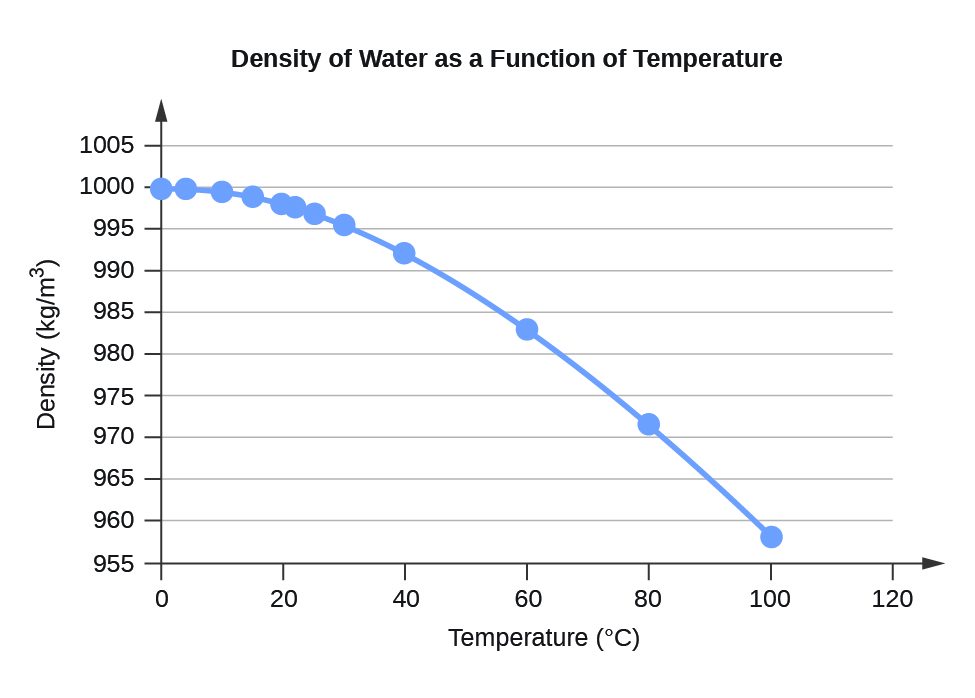

Then a method to obtain an average water density as a function of suction for sodium and calcium bentonites is proposed. Pure water has its highest density of 1000 kg/m3 at a temperature of 3.98oC (39.2oF). KelPs Formulations 2. In this paper, a new formulation of the density of water (based primarily on the work of Kell 2) as a function of temperature on the 1990 International Temperature Scale is presented. Pure water has a density of 1.000 g/cm3 at 4 C.

A description of the hydration process of expansive clay considering the micro and macrostructure is included. Blanke 1 is used to calculate the density of water. When water is a liquid, the water molecules are packed relatively close together but. This paper presents, first, a review of measurements performed at microscopic level. You will need to gather the following materials: a pencil a small paper cup. This is the case for the unsaturated flow calculations, which depend on the water-retention properties of the soil. This activity explores how the temperature of water affects its density. Although the density of water varies with temperature. From a geotechnical point of view, most of the analyses required to check the performance of the barrier are sensitive to the value considered for the water density. The density of fresh water at a temperature of approximately 4 degrees Celsius is 1000 kg/m3. This kind of material is being considered in the design of engineered barriers for radioactive waste disposal, because of its sealing and retention properties.

Generally, the density of water varies with temperature and the salinity of the water, it does not have absolute density. It means that it is the weight of the water per unit volume, that depends on the temperature of the water. This fact becomes especially evident in compacted highly expansive clays close to water saturation. The density of water is defined as the mass per unit volume. Under these conditions, the exact density of water is 999.972 kg/m3. There is increasing evidence from researchers on clay mineralogy that the density of water attached to clay minerals may be greater than 1♰ Mg/m 3. It is generally accepted that the density of water is 1000 kg/m 3, 1000 g/l or 1 g/ml, but do we often think at what temperature these data were obtained The maximum density of water is reached at a temperature of 3.84.2C.


 0 kommentar(er)
0 kommentar(er)
